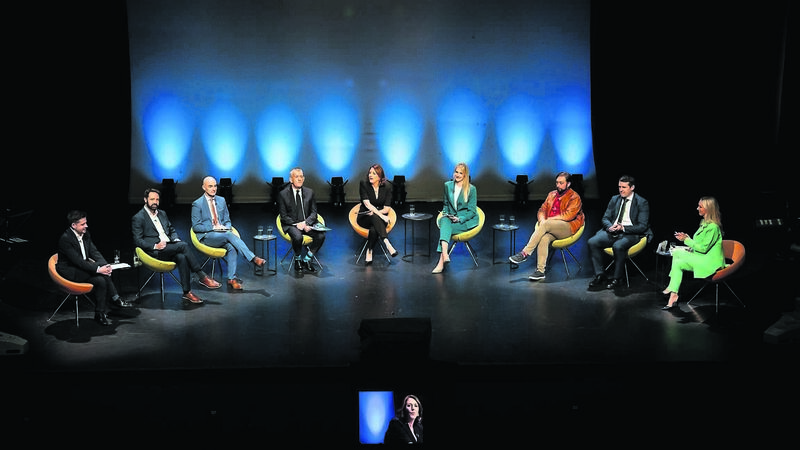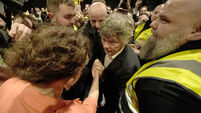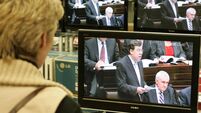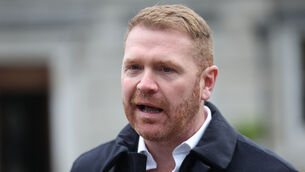Mick Clifford: Everything you need to know about the race to be Limerick mayor

Conor Sheehan (Labour), Brian Leddin (Green Party), Daniel Butler (Fine Gael), Maurice Quinlivan (Sinn Féin), host Katie Hannon, Elisa O’Donovan (Social Democrats), Ruairí Fahy, (PBP-Solidarity), Frankie Daly (Independent), and Dee Ryan (Fianna Fáil) at the ‘Upfront with Katie Hannon’ TV debate on the Limerick mayoral election which took place at the Lime Tree Theatre, Limerick. Picture: Don Moloney














